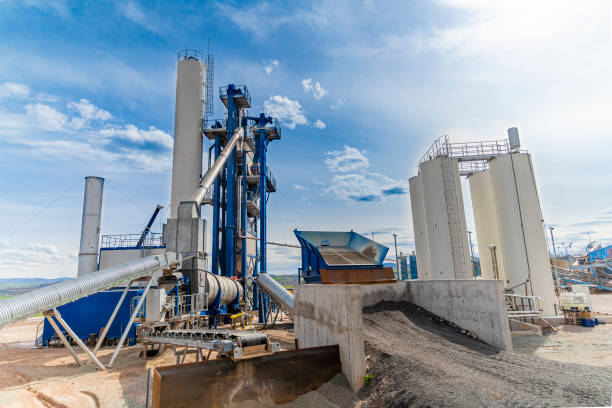How Aggregate Strength Ensures Long-Lasting Construction

In the world of construction, the durability and longevity of a structure often hinge on the strength of its underlying materials. Among these, construction aggregates play a pivotal role, serving as the backbone for modern building projects. From natural aggregates that promote sustainable construction to recycled aggregates that reduce waste and enhance efficiency, the right choice can significantly impact a project's success. Understanding the different types of aggregates and their unique characteristics is crucial for builders aiming to optimize construction performance and ensure their projects stand the test of time. In this guide, we delve into the importance of aggregate strength and provide insights into strategic aggregate selection to help you make informed decisions for your next building endeavor.
Boosting Aggregate Strength for Durability
In construction, the strength of aggregates is paramount to ensuring long-lasting and durable structures. This section explores the critical role of aggregate strength and how it contributes to the overall performance of construction projects.
The Importance of Aggregate Strength
Aggregate strength is a fundamental factor in determining the durability and performance of construction materials. Strong aggregates form the backbone of robust concrete and asphalt mixtures, directly influencing the load-bearing capacity and longevity of structures.
The compressive strength of aggregates plays a crucial role in resisting forces that could potentially cause structural failure. This strength is particularly important in high-stress applications such as foundations, bridges, and high-rise buildings.
Moreover, aggregate strength contributes significantly to the wear resistance of surfaces. In applications like road construction, stronger aggregates help create pavements that can withstand heavy traffic and harsh weather conditions over extended periods.
Natural Aggregates in Construction
Natural aggregates, sourced directly from the earth, have been the cornerstone of construction for centuries. These materials, including crushed stone, sand, and gravel, offer unique properties that make them indispensable in modern building practices.
One of the primary advantages of natural aggregates is their inherent strength and durability. Formed over millions of years, these materials have withstood immense geological pressures, resulting in superior structural integrity.
Natural aggregates also contribute to sustainable construction practices. When sourced responsibly, they have a lower carbon footprint compared to manufactured alternatives. Additionally, their abundance and wide distribution make them an economically viable option for many construction projects.
Benefits of Recycled Aggregates
Recycled aggregates are revolutionizing the construction industry by offering a sustainable alternative to natural materials. These aggregates, derived from crushed concrete and other construction waste, provide numerous environmental and economic benefits.
The use of recycled aggregates significantly reduces the demand for virgin materials, thereby conserving natural resources and minimizing the environmental impact of quarrying. This practice aligns with the growing emphasis on circular economy principles in the construction sector.
Moreover, recycled aggregates often demonstrate comparable strength to their natural counterparts, mainly when properly processed and graded. This makes them suitable for a wide range of applications, from non-structural uses to high-performance concrete mixtures.
Economically, recycled aggregates can offer cost savings, particularly in regions where natural aggregates are scarce or expensive to transport. This cost-effectiveness, combined with their environmental benefits, makes recycled aggregates an increasingly attractive option for construction professionals.
For ordering and pricing, please call our team at 405-423-3461​​​​​​






